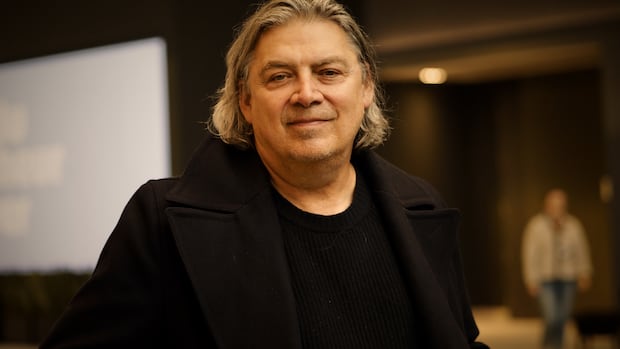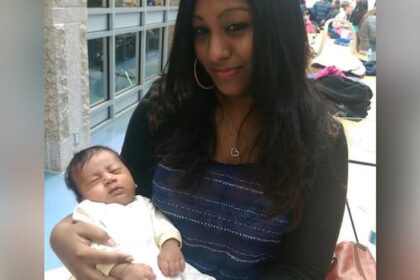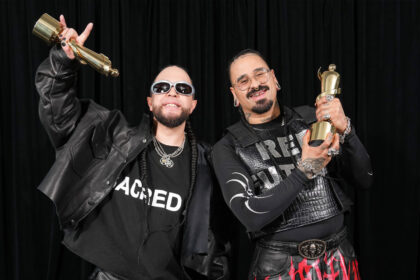MontrealFor the first time, Quebec elementary and secondary school students will be required to read the works of Indigenous authors.’Finally, speeches by us, not just speeches about us,’ rejoices Wendat authorHénia Ould-Hammou · CBC News · Posted: Nov 21, 2025 4:00 AM EST | Last Updated: 5 hours agoListen to this articleEstimated 5 minutesThe audio version of this article is generated by text-to-speech, a technology based on artificial intelligence.Michel Jean, an Innu author and former journalist, told Radio-Canada the provincial government is catching up with what many teachers were already doing: including Indigenous literature in their school curricula. (Kim Bouchard/RadioCanada)For the first time, Quebec elementary and secondary school students will be required to read the works of Indigenous authors.A new version of the French-language curriculum, which is slated to come into effect in the 2026-27 school year, will include the mandatory reading of a minimum of two Indigenous literary works. A poem, a play or a song are also considered texts.Jay Odjick, writer, artist and television producer from the Kitigan Zibi Anishinābeg First Nation in western Quebec, said the news came as a surprise.”No matter what our nation is … literature is a great way to learn about the experiences and realities of people sharing this land,” he said on CBC’s Breakaway.”In general, it’s a welcome move and I think we should support and celebrate it.”Odjick said other measures should accompany the new curriculum, including finding authentic Indigenous voices and building stronger bridges of communication between Indigenous and non-Indigenous teachers and other players in the education system.Jay Odjick, writer, artist and television producer from the Kitigan Zibi Anishinābeg First Nation. (Duncan McCue/CBC)He said it’s important to educate teachers about the realities and challenges facing Indigenous peoples today. “Just so we’re not kind of throwing teachers into the deep end of the pool and saying: ‘Here, teach this stuff,’ but making sure that they have some grounding in why it’s important,” explained Odjick.Specializing in graphic novels, Odjick added that people might be “surprised” to discover the diversity of Indigenous books and material.”It’s not just one thing and it’s not just period piece drama about serious issues. There’s things that are lighter-hearted,” Odjick said. “I hope some of this stuff finds its way to kids who ordinarily might not have been exposed to it.” ‘The teachers were already there’Michel Jean, former journalist and Innu author, told Radio-Canada the government’s decision is “encouraging.””Where things are still stuck and moving more slowly is at the institutional level and in everything political,” said Jean.He pointed out that teachers have been putting Indigenous books, including his, on their curriculum for a long time because they felt something was missing. “The teachers were already there,” he said, noting that institutions are the ones now catching up. “Stories about First Nations, let’s not forget, are not just the history of First Nations, they are the history of Quebec …. Don’t forget that it’s still Quebec literature.”Louis-Karl Picard-Sioui, Wendat author and director of Kwahiatonhk! — an organization that develops and promotes Indigenous literature — said the inclusion of Indigenous works was a “long-standing wish.” “Finally, speeches by us, not just speeches about us,” Picard-Sioui told Radio-Canada.He mentioned that this is a matter of “regaining control of how we are represented” and setting the record straight so people could live in harmony.Louis-Karl Picard-Sioui is a Wendat author, the director of Kwahiatonhk! and the executive director of the Salon du livre des Premières Nations. (Ismaël Houdassine/Radio-Canada)Picard-Sioui also believes that this decision will help bring more nuanced and diverse Indigenous perspectives to the table.”Even within the same nation, realities differ from one community to another,” he said. “From what I remember and what I see with my children, the current program does not necessarily promote nuance, whereas literature does.”Beyond this decision, which he welcomes, the author would like to see Indigenous literature made compulsory in education programs at the university level.Years of calling for reformFor years, Indigenous leaders and Quebec teachers have been calling for a review of how Indigenous history is taught in elementary and secondary schools.When asked to respond to their concerns, Education Ministry spokesperson Bryan St-Louis said the ministry has committed to involving Indigenous experts and organizations in the process of renewing educational programs. “Teaching materials in Quebec have been revised in recent years to incorporate changes to the Quebec and Canadian history curriculum in response to recommendations made by the Truth and Reconciliation Commission of Canada,” wrote St-Louis in a statement to CBC, adding that teachers have the “necessary wiggle room to put forward Indigenous perspectives” in the subjects they teach.”Since the start of the 2018-2019 school year, these textbooks have been in use in all schools in Quebec.” However, in 2021, Indigenous leaders and Quebec teachers called for a review of the province’s curriculum to substantially change how Indigenous people are represented in all subjects taught at school.The provisional and reviewed French-language program is currently being tested in 55 classrooms in Quebec and is expected to officially roll out across the province next fall. ABOUT THE AUTHORHénia Ould-Hammou is a journalist with CBC Montreal. She previously completed an internship with La Presse after graduating from McGill University with a double major in political science and psychology. Hénia is interested in international and societal issues, community stories, soccer, politics and rap. Send her an email at henia.ould-hammou@cbc.ca With files from Breakaway and Radio-Canada
Wednesday, 4 Mar 2026
Canada – The Illusion
Search
Have an existing account?
Sign In
© 2022 Foxiz News Network. Ruby Design Company. All Rights Reserved.
You May also Like
- More News:
- history
- Standing Bear Network
- John Gonzalez
- ᐊᔭᐦᑊ ayahp — It happened
- Creation
- Beneath the Water
- Olympic gold medal
- Jim Thorpe
- type O blood
- the bringer of life
- Raven
- Wás’agi
- NoiseCat
- 'Sugarcane'
- The rivers still sing
- ᑲᓂᐸᐏᐟ ᒪᐢᑿ
- ᐅᑳᐤ okâw — We remember
- ᐊᓂᓈᐯᐃᐧᐣ aninâpêwin — Truth
- This is what it means to be human.
- Nokoma











